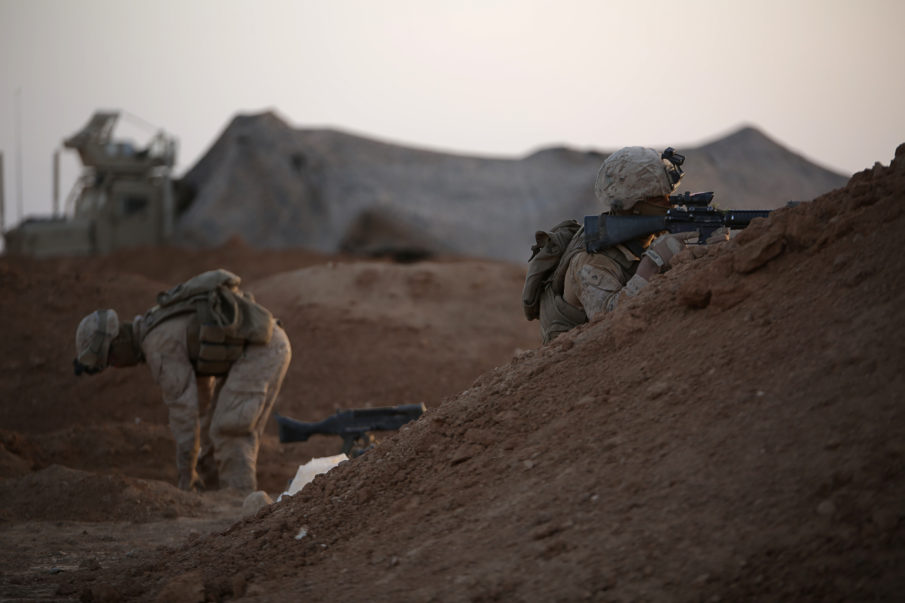The U.S. special envoy to the coalition against the Islamic State on Wednesday met with leaders of a council consisting of members from the Syrian Democratic Forces (SDF) who plan on administering the Syrian city of Raqqa following the eventual collapse of the ISIS stronghold.
Brett McGurk, who was appointed by the State Department has been serving in the position since 2015, has made a number of trips to Syria and Iraq recently to meet with leadership from the predominately Kurdish fighters who form the bulk of America’s allies on the ground in Syria. He has largely been the face of U.S. foreign policy to the SDF, and his visit coincides with a number of attacks from neighboring Turkey against Kurdish forces allied with the United States.
Turkey recently shelled YPG positions in Syria, and conducted bombing attacks on Kurdish fighters in northern Iraq, citing both instances as defensive in nature. Turkey claims the YPG fighters in Syria had fired on Turkey-allied Free Syrian Army fighters, and that the fighters in Iraq were members of the PKK.
The PKK is a Kurdish terrorist organization that has been running a decades-old insurgency just north of the Iraq and Syrian border in Turkey. Tens of thousands have been killed in the fighting. The United States categorizes the PKK as a terrorist group, but insists there is a distinction between the YPG fighters in the SDF and the PKK terrorists operating in Turkey.
The Turkish government does not so readily recognize a difference.
While in Washington D.C. in May, the Turkish foreign minister specifically accused McGurk of being too supportive of Kurdish forces it considers to be terrorist militias. He also said Turkey was assured that Raqqa would not be left in the hands of Kurds, but instead given to local Arabs.
The United States has walked a tenuous diplomatic line with regard to arming Kurds and still appeasing their traditional NATO ally Turkey. Other political fallouts, particularly President Erdogan’s consolidation of power through a referendum election earlier this year, has raised tensions between Turkey and many other NATO allies.
Secretary of Defense James Mattis recently reaffirmed the U.S. military’s claim that all weapons and equipment given to the YPG fighters will be returned once the American-approved military objective in Syria is achieved. He also said that if the conditions on the ground dictate they need more, then they will get more.
A member of the future Raqqa city council said that McGurk did not speak in specifics during their meetings, but promised some level of investment in infrastructure. “They did not specify any sum, but they decided we will support first removing mines, lifting rubble, maintenance of schools, then electricity stations and water,” the council member said.
As ISIS continues to be wiped off the map by SDF and American forces, and other insurgent groups are left more and more isolated to fight the Assad-Russia alliance, the political situation after ISIS is displaced looks grim. It does not appear that the U.S. has any stomach to remain in Syria and nation-build Iraq-style following the campaign against ISIS. If the way U.S. officials have carefully disregarded Turkish concerns so far are any indication, whatever scenario unfolds in the aftermath of ISIS will not be politically palatable.
Image courtesy of the Department of Defense
Already have an account? Sign In
Two ways to continue to read this article.
Subscribe
$1.99
every 4 weeks
- Unlimited access to all articles
- Support independent journalism
- Ad-free reading experience
Subscribe Now
Recurring Monthly. Cancel Anytime.











COMMENTS